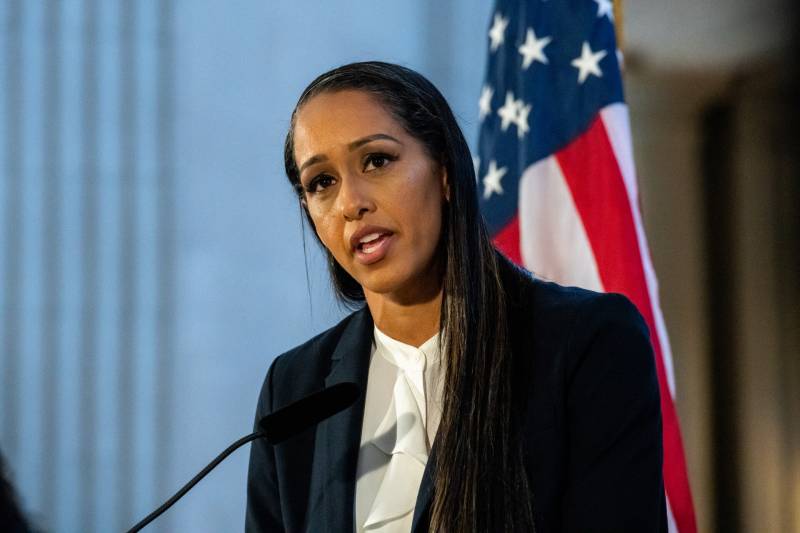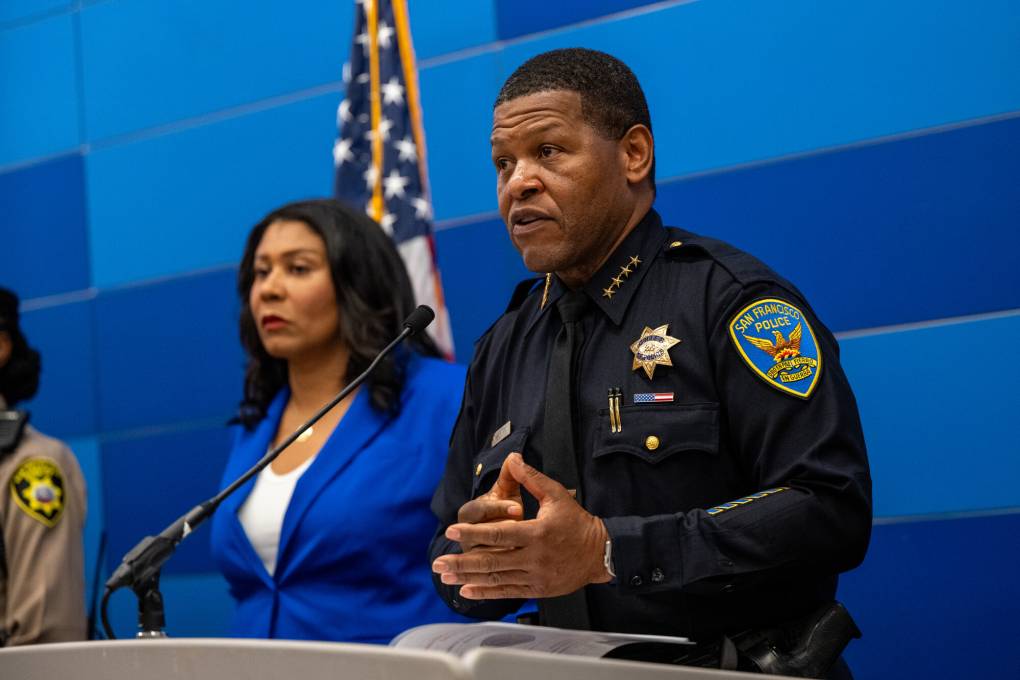Ismail Ramsey, the U.S. attorney for the Northern District of California, did not respond to requests for comment for this story. However, Ramsey told KQED in July that the approach has been used for more than 100 Tenderloin cases so far.
Cases that are “whisked away” to federal court stop the public defender’s office from being involved, Raju said, noting that of seven trials in which his office argued a human trafficking defense in the last two years, two ended in guilty verdicts, four ended in hung juries, and the most recent led to an acquittal.
Jenkins’ sole opponent in November’s election, Ryan Khojasteh, supports having federal authorities assist in arresting drug dealers but said the agencies should be more focused on high-level dealers and cartels.
“When it comes to really competently and holistically addressing the drug trade in our city, we have to go after those at the top to make a meaningful difference,” he said. “You can put away one low-level drug dealer and three are in their place tomorrow.”
One of the ways to do that, Khojasteh proposed, is by getting defendants to share confidential information in exchange for a favorable plea deal, which could include protected status to stay in the country.
“We should be finding out who is the one coercing these people,” he said.
Meanwhile, candidates vying for mayor have largely shown support for federal prosecutors’ and law enforcement agencies’ crackdown on the city’s drug markets.
Former supervisor and interim mayor Mark Farrell has called for a fentanyl state of emergency to leverage more resources and bring the National Guard to areas like the Tenderloin to further these efforts.
“Our sanctuary city policy was never meant to harbor criminals or those peddling death on our streets. Mayor Breed has had six years to do everything in her power to make a meaningful difference on our streets, and her latest efforts are too little too late for San Francisco,” Farrell said.
Supervisor Ahsha Safai, who immigrated to the U.S. from Iran as a child, is a strong supporter of the sanctuary city policy but said drug dealers should be held accountable as overdose rates continue at epidemic levels and neighborhoods struggle with the effects of street-level drug dealing.
“I’m sure there are a handful of cases of someone being legitimately trafficked. But ultimately, people are selling an extremely lethal weapon, this drug, on our streets,” he said. “And the feds are deciding to step in and resolve something that the local government and the mayor had let grow out of control, quite frankly.”
For her part, Mayor London Breed has touted the work the federal government has done with her administration so far.
Jeff Cretan, a spokesperson for the mayor’s office, said that the city “needed support for prosecuting these crimes” and that Breed believes the federal government can be effective in doing so. “The devastation that fentanyl is having in our city and across this country is powerful,” Cretan said. “While we aren’t changing our [sanctuary city] laws here locally, there is a need for more enforcement to stop the flow of this drug.”


